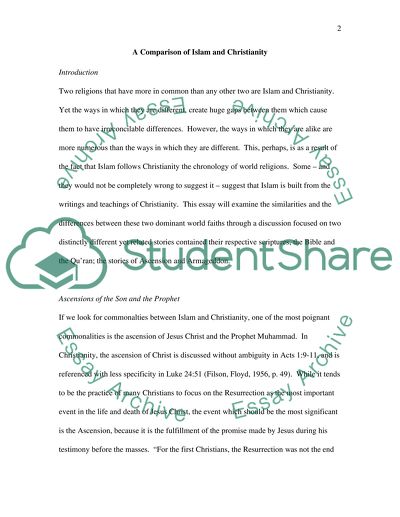Cite this document
(A Comparison of Islam and Christianity Essay Example | Topics and Well Written Essays - 2000 words, n.d.)
A Comparison of Islam and Christianity Essay Example | Topics and Well Written Essays - 2000 words. https://studentshare.org/religion-and-theology/1542578-compare-and-contrast-christianity-and-islam
A Comparison of Islam and Christianity Essay Example | Topics and Well Written Essays - 2000 words. https://studentshare.org/religion-and-theology/1542578-compare-and-contrast-christianity-and-islam
(A Comparison of Islam and Christianity Essay Example | Topics and Well Written Essays - 2000 Words)
A Comparison of Islam and Christianity Essay Example | Topics and Well Written Essays - 2000 Words. https://studentshare.org/religion-and-theology/1542578-compare-and-contrast-christianity-and-islam.
A Comparison of Islam and Christianity Essay Example | Topics and Well Written Essays - 2000 Words. https://studentshare.org/religion-and-theology/1542578-compare-and-contrast-christianity-and-islam.
“A Comparison of Islam and Christianity Essay Example | Topics and Well Written Essays - 2000 Words”. https://studentshare.org/religion-and-theology/1542578-compare-and-contrast-christianity-and-islam.


